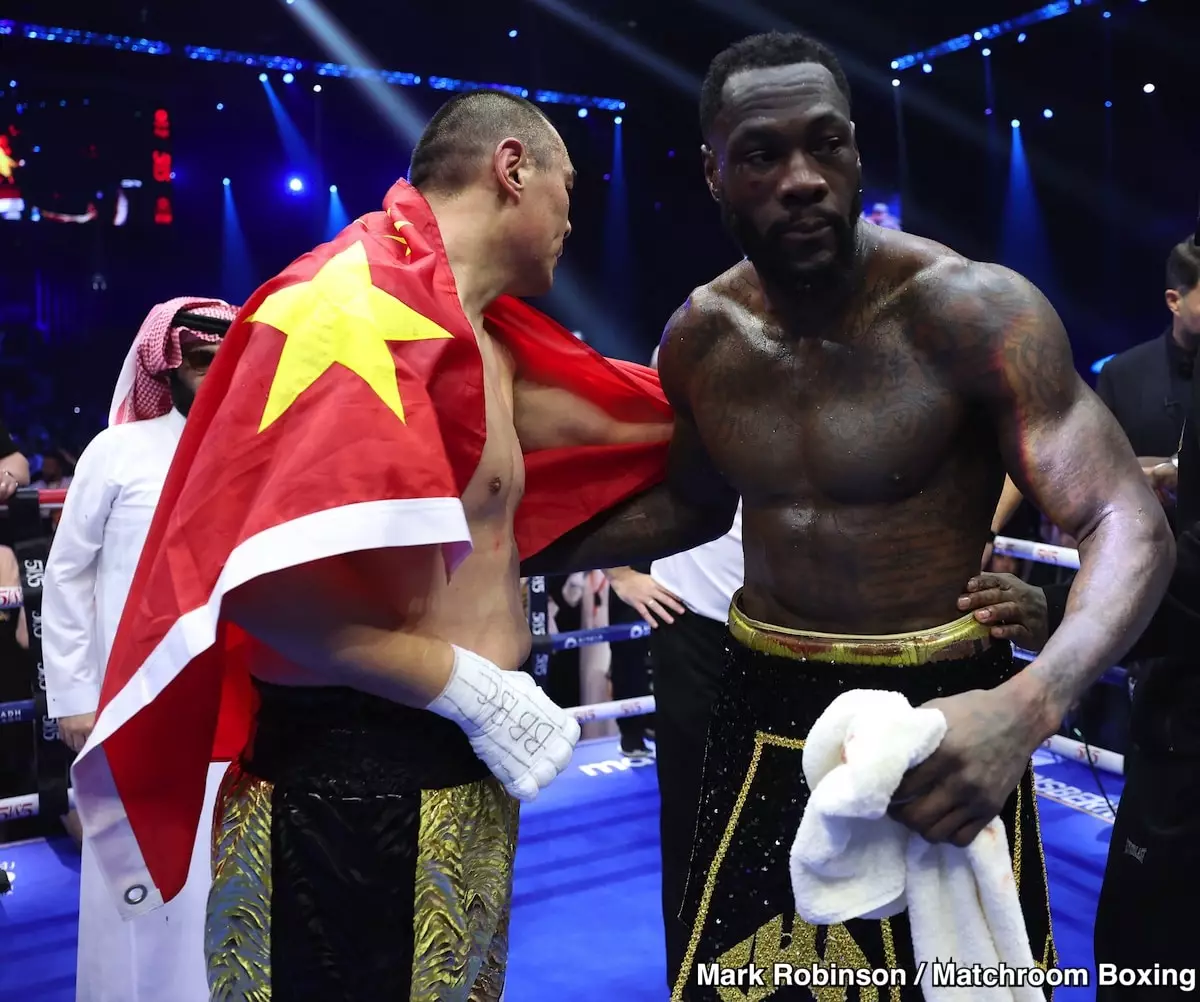Deontay Wilder, the former WBC heavyweight champion, has faced a tumultuous journey in the boxing ring over the last few years. Injuries, particularly to his right arm, have hindered his performance, leaving fans and critics to wonder if the “Bronze Bomber” was on the brink of decline. At 39, many athletes might consider retirement, but Wilder’s hunger for championships remains undiminished. His acknowledgment of past struggles is a testament to the resilience that has defined his career, underscoring the mental fortitude required to navigate such challenges.
Wilder is stepping back into the ring against Tyrrell Anthony Herndon, a seasoned competitor, on June 27th at the Charles Koch Arena in Wichita, Kansas. This matchup is not merely a fight; for Wilder, it represents an opportunity to reignite his aspirations of becoming the undisputed champion. Despite the setbacks, Wilder’s determination to pivot from his recent adversities reveals a fighter who is not merely surviving but thriving under pressure.
Setting the Stage for Redemption
Wilder’s last several bouts have been against formidable opponents, including losses to Tyson Fury, Joseph Parker, and Zhilei Zhang, all of which have cast shadows over his once-illustrious career. These defeats have led some to speculate whether Wilder’s best days are behind him. However, the narrative is shifting. He firmly proclaims his readiness to reclaim his position, demonstrating that he still possesses the will and skill needed to rise back to the top—a claim bolstered by a newfound physical health after battling shoulder injuries that hampered his punching power and effectiveness.
In his candid discussions about the pain and rehabilitation of his shoulder, Wilder reflects not only on physical recovery but on the broader emotional and psychological battles he has faced. The meticulous risk management inherent in reestablishing his right arm’s strength conveys a dedication to his craft that should not be overlooked. Fighters often battle their own minds as fiercely as they battle their opponents; Wilder’s transparency about this duality can resonate with fans who admire not just the athlete but the man behind the gloves.
The Road Ahead: Chasing Legacy
Wilder’s statement about setting out to unify the heavyweight division speaks volumes about his ambition. He recognizes that time is of the essence; every match matters. Fighting Herndon, a name not well known on boxing’s grand stage, could either be a strategic stepping stone or a potential pitfall. The fact that Wilder finds himself in Wichita rather than the glamorous settings of international boxing promotion illustrates the precarious nature of his current status.
His return to the ring is an assertion of his continued relevance in a sport that continuously evolves. As Wilder aims for redemption, he reminds all that the road to greatness is fraught with obstacles, but it is the ability to confront and overcome adversity that ultimately defines a champion. With the vigor of a young fighter and the wisdom of a seasoned competitor, Deontay Wilder is not merely fighting for a title; he is pushing against the very narrative that seeks to limit his potential. It’s a deeply human story of grit, perseverance, and the unyielding quest for greatness that makes Wilder’s saga all the more compelling.

